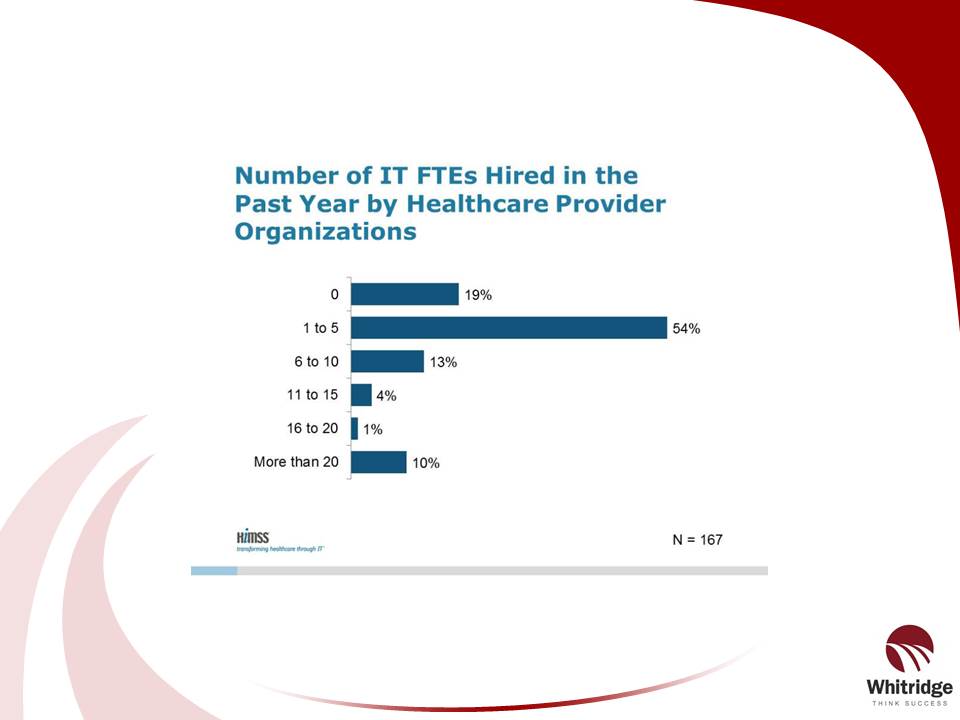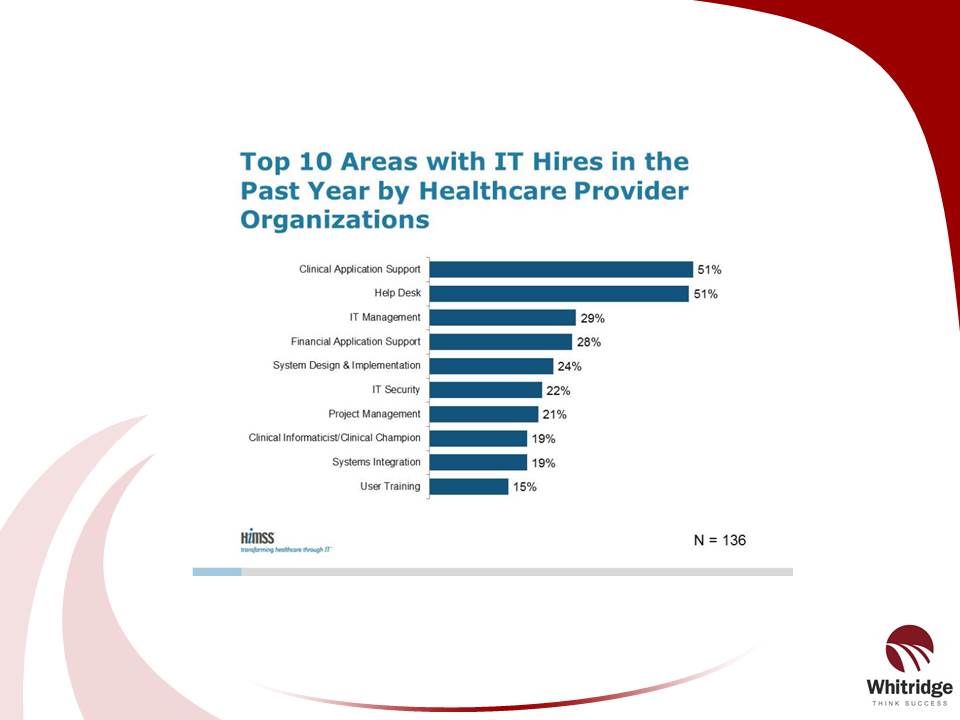Information Technology will change the face of healthcare (or will a skills shortage get in the way?)

The influence information technology has had and will continue to have on healthcare in the United States has been chronicled over and over during the age of the Affordable Care Act. It has been articulated possibly best by Farzad Mostashari who recently reminded the HIT Policy Committee of their present accomplishments. That being: four years ago 90 percent of hospital patient records, 80 percent of physician’s patient records and 93 percent of prescriptions were written on paper. In 2012, 44 percent of U.S. hospitals had a basic EHR in place up 17 percent from 2011 and almost triple from 2010 according to the Robert Woods Johnson Foundation’s annual report. These are heady advances considering healthcare’s reluctance in the past to adopt automation of any kind along with the concern over patient records security and privacy. This outstanding momentum that has been influenced by the launch of the Meaningful Use incentive plan may well be in jeopardy.
The recent HIMSS Workforce Survey and multiple articles such as the recent article that appeared in Healthcare IT News headlined “Talent shortage may threaten IT momentum.” Both indicate areas of the skill base required to meet the deadlines identified by CMS and ONC are sadly lacking and are already impacting the initiation or completion of critical IT projects.
There is a requirement almost industry wide in Healthcare IT that in order to get a job in healthcare IT you must have healthcare IT experience. If there are not enough skilled professionals presently in IT today then this practice will prevent us from ever getting to the level necessary to satisfy the demands. When you consider the impending deadline of Stage 2 Meaningful Use and the conversion of ICD 9 to ICD 10, which alone have caused a serious stress on the existing workforce, add to that reaching interoperability of systems within a healthcare provider and creation of patient portals all looming on the horizon and the situation will only get worse. It is time to recognize that if we truly are committed to changing the efficiency within healthcare we have to be willing to train some “outsiders” to help us get it built. This is a role that contract/contingent staffing can play in assisting the industry in working toward a balance between supply and demand. IT staffing companies have the diverse talent necessary to provide highly qualified trainable IT staff that are motivated to enter the Healthcare IT world if only given the chance. The ironic fact is they don’t have to demand in IT as a whole is among the highest in all staffing segments and growing at an estimated 8% YOY pace according to Staffing Industry Analysts. There is an attraction to the “cause “of making healthcare more efficient that many in consulting are drawn to. When entertaining the thought of bringing on an additional IT resource think out of the box and consider a non-healthcare person and think about how a contract staffing firm might help you identify that candidate from a larger community.
I have included some slides from the HIMSS Workforce Survey which will provide some data supporting the crisis.



